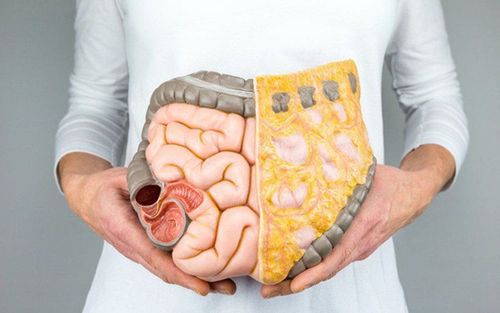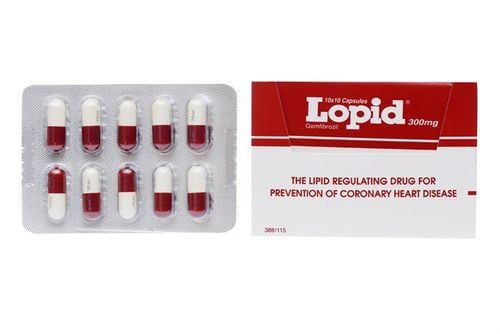This is an automatically translated article.
Weight loss has long been the goal of people who want to improve their health and appearance. But not many people know that there is a type of fat, called brown fat, that can help with weight loss. Besides, eating fat to reduce fat has also been proven by some studies.
1. What is brown fat?
Brown fat is a type of fat in the body that produces heat. They get their reddish-brown color because they're filled with energy-producing substances in cells - called mitochondria, which power cells by converting calories into heat. All people are born with brown fat. In fact, babies have a lot of these fats, which help keep them warm out of the womb. But researchers still don't know why people tend to lose brown fat as they age.
Brown fat can make up a small amount of an adult's total body fat. But a growing body of research shows that some adults have higher than expected amounts of brown fat. Brown fat burns lipids - fat that is loaded with calories. Meanwhile, white fat is the "bad" fat, storing lipids, creating unhealthy belly and thigh fat. In addition, studies show that brown fat can lower blood sugar levels. According to a 2013 study, calorie-burning brown fat protected rats from obesity and problems related to insulin and blood sugar.
If the findings are proven true in humans. This means that brown fat can affect your ability to control diabetes. One expert predicts there will be more research on the subject in the next few years.
MORE: Types of body fat: Benefits, risks, and more
2. How do I know if I have brown fat?
This type of fat is located between areas of white fat on the body, usually in: neck, chest and shoulders. But there is no easy way to determine the amount of brown fat. You can't see brown fat just by looking at it from the outside. In the past, researchers have found this type of fat in biopsies of infants and mice. But as body imaging methods have evolved, the ability to see brown fat has also improved.
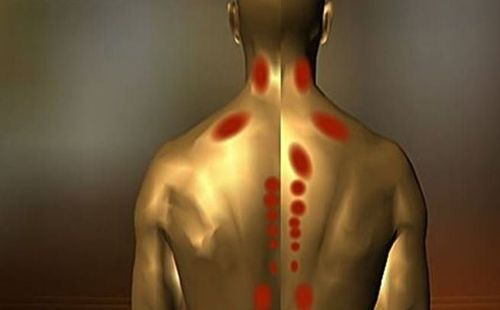
Mỡ nâu thường xuất hiện ở các vùng cổ, ngực và vai
Specifically, when radiologists start scanning PET images in adults, they see areas that cannot be identified as cancer or inflammation. These brown (or beige) areas turn out to be good fat.
3. How to increase brown fat for the body
You can increase the amount of brown fat by turning the air conditioner down a few degrees or going for a brisk walk in the winter. Evidence shows that when the temperature drops, the number of calories burned by brown fat increases. But experts don't recommend temperatures, and it's not clear what the impact of prolonged stay in cold weather will be.
A small recent study found that long-term exposure to cold can promote the growth of brown fat, while warmth seems to prevent them. Researchers followed five men aged 19 to 23 for four months and set the temperature in their bedrooms. The results showed that mild cold - around 19°C - increased the men's brown fat and calorie burning capacity by 30-40%. Meanwhile, mildly warm temperatures - about 31°C - reduce brown fat.
Other researchers looked at whether cold temperatures turned white fat into brown fat, or if the body actually made more brown fat cells. Experiments on mice found that they created new brown fat cells in cold temperatures, rather than simply changing from white to brown fat.
An October 2014 study showed that increasing the calorie-burning activity of brown fat is a promising option for weight loss therapies. Scientists involved in brown fat research hope to develop new drugs that activate these "good" fat cells. By far, the most effective way to increase brown fat is exposure to cold temperatures.
4. Can brown fat help you lose weight?
How many calories increasing brown fat can help you burn is still a matter of debate. One expert estimates you can burn 300-400 extra calories per day. Although it is a significant number, it will not necessarily lead to weight loss. However, combined with lifestyle and dietary changes, this can help people reach their goal weight faster. However, more needs to be learned about how brown fat is activated. For example, is indoor heating a cause of obesity?
Research shows that temperatures have become warmer over the past few decades in the US and UK. Along with an unhealthy diet and not getting enough exercise, some speculate that temperature changes may also play a role in increasing obesity.
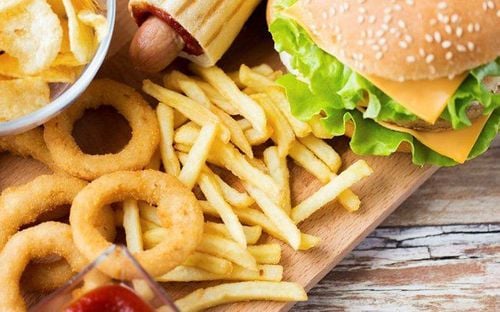
Chế độ ăn uống không lành mạnh góp phần làm gia tăng béo phì
In a small Japanese study, 12 young men with lower than average calorie burning brown fat were asked to sit in a 17°C room for 2 hours a day for 6 weeks. At first, they burned an average of 108 extra calories when it was colder than the normal indoor temperature. After 6 weeks, they burned 289 more calories in cold weather.
In a nutshell, brown fat is a good fat - helps burn calories and can be used to shed excess calories. When you're cold, the nerve cells in brown fat release certain hormones, which in turn increase your ability to burn calories and possibly aid in fat loss.
MORE: Good Fats - Bad Fats: Health Benefits of Omega-3 Fats
5. Eat fat to lose weight
To this day, people still think that eating fat makes them fat, so try to look for low-fat products. But the truth is that eating fat doesn't make you fat. Experts have confirmed that fat is an important food for humans. There are studies that show that eating healthy fats helps people control their weight better than eliminating fat altogether. While it may seem counterintuitive, increasing your consumption of healthy fats can actually prevent weight gain and keep you feeling full for longer. Specifically, fat takes a while to digest, thereby slowing down the emptying of the stomach, reducing hunger and cravings.
One study found that compared with a low-fat diet, a diet rich in healthy fats from olive oil and nuts was associated with controlled weight gain. Another small survey found that dieters who took 2 tablespoons (30 ml) of coconut oil per day lost more belly fat than those who took soybean oil. Meanwhile, unhealthy fats - trans fats, for example, have been shown to increase body fat, waist circumference and belly fat. Olive oil, coconut oil, avocados, nuts and seeds... are just a few examples of healthy fats that are helpful in burning fat.
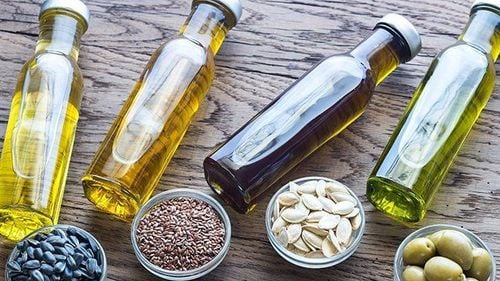
Sử dụng chất béo lành mạnh giúp ích trong việc đốt cháy mỡ
However, it should be noted that healthy fats are still high in calories, so control the amount you consume. Instead of eating more fat, try swapping unhealthy fats in your diet for healthy options.
In short, fat is an important food for humans, and it is digested slowly, so it can help reduce cravings. High intake of healthy fats has also been linked to a lower risk of weight gain, just as eating fats reduces belly fat. In addition, researchers recently discovered that cold temperatures can help us create more good brown fat, boost metabolism, and increase the body's ability to burn calories.
Please dial HOTLINE for more information or register for an appointment HERE. Download MyVinmec app to make appointments faster and to manage your bookings easily.
References: webmd.com, health.harvard.edu, healthline.com







